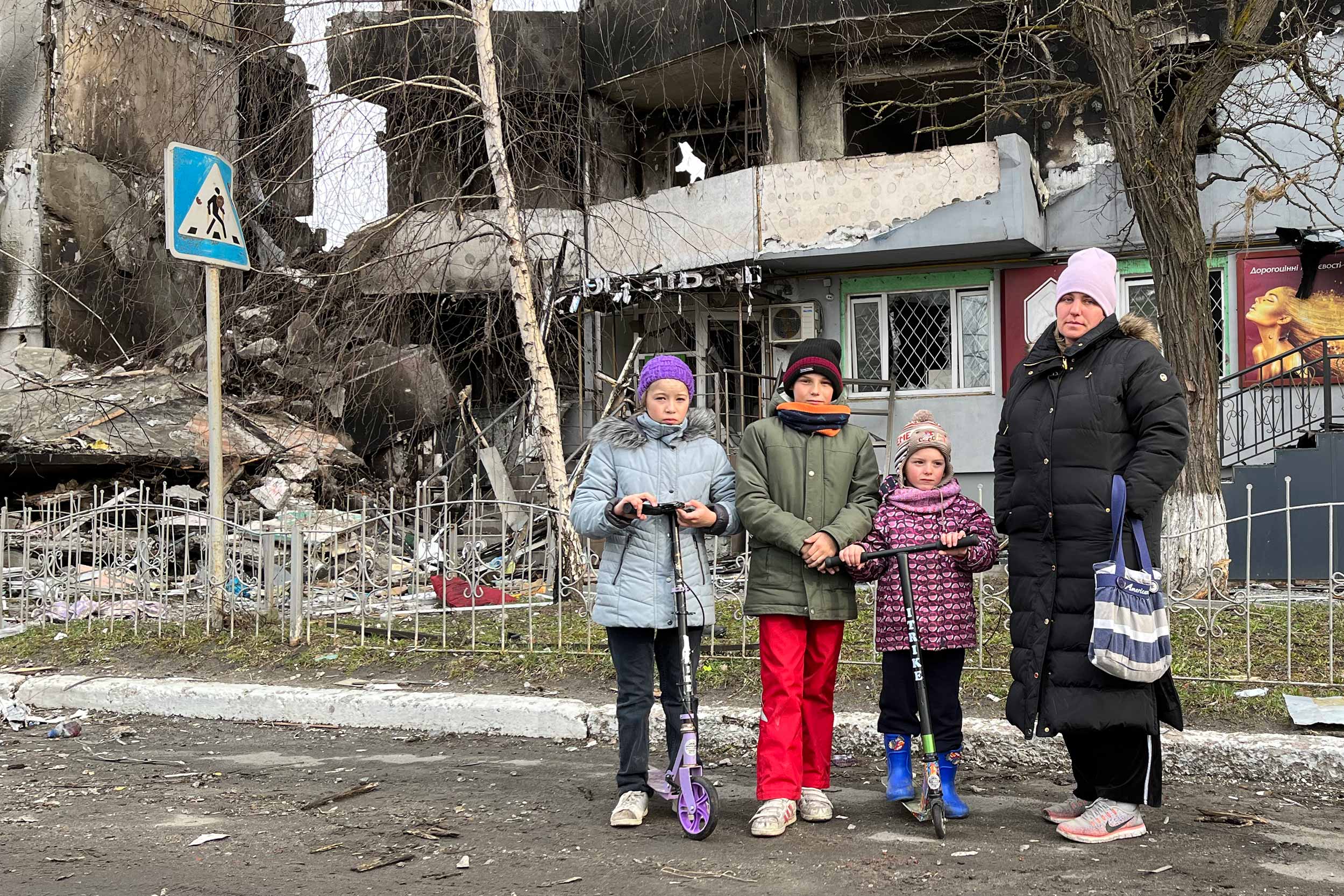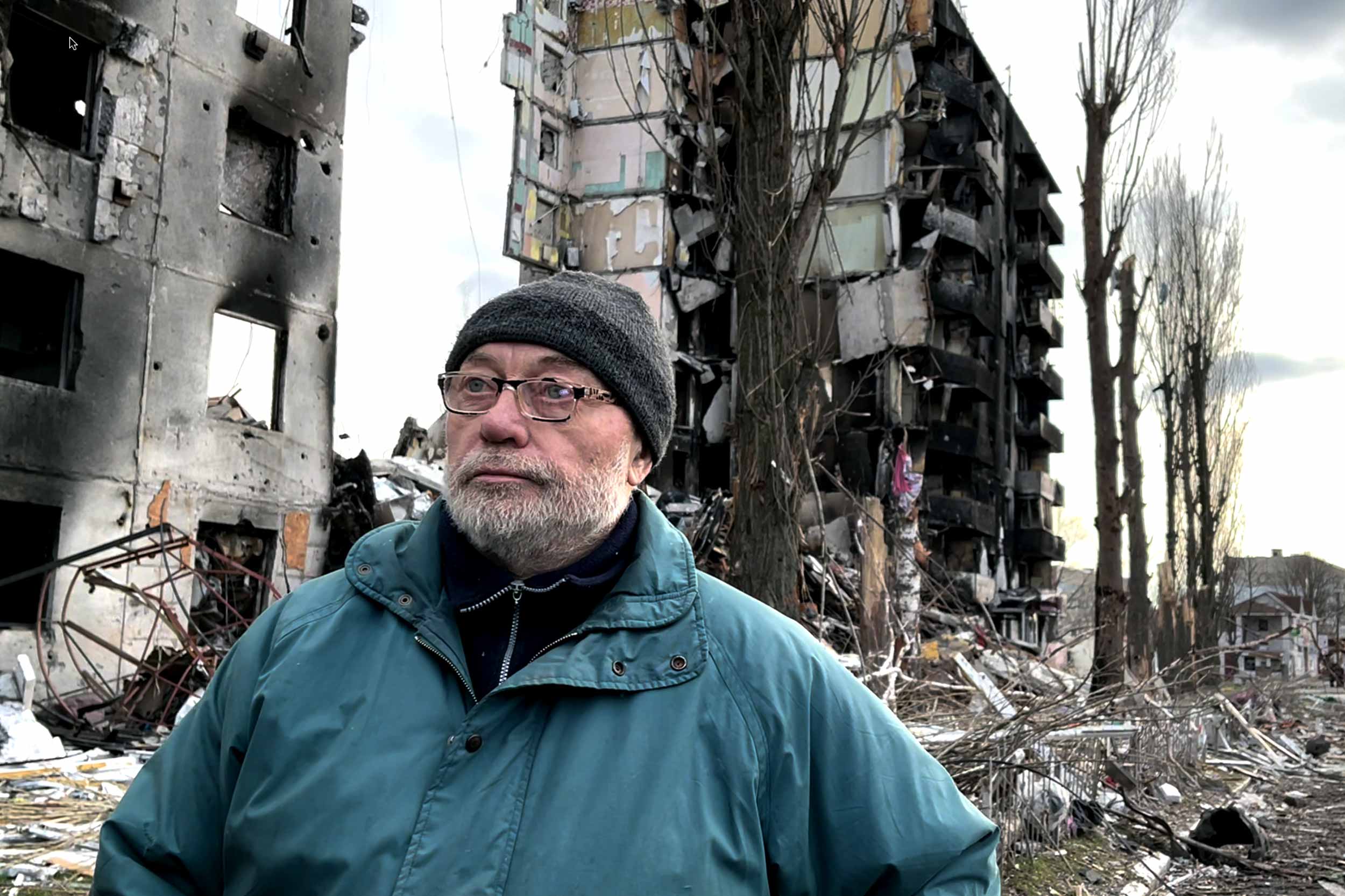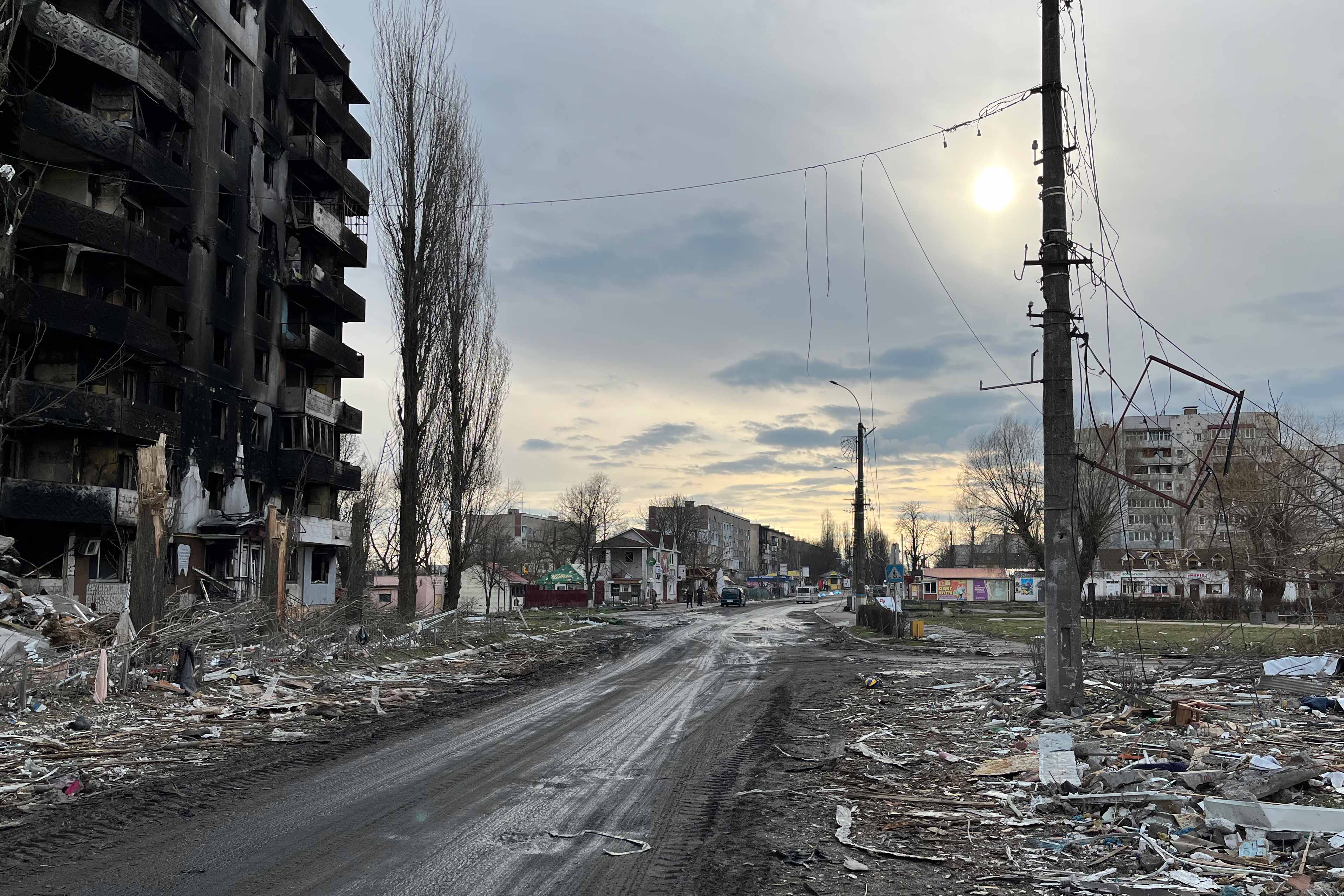Ukraine: Buried Alive
Residents tell how Russian soldiers left civilians to die in the basement of a bombed out building.
Ukraine: Buried Alive
Residents tell how Russian soldiers left civilians to die in the basement of a bombed out building.
Each city in Ukraine has suffered horrors in its own way, and in Borodyanka it is burial alive.
“Twenty-five people have been under the rubble for weeks, and they are still there,” said Julia, standing in the devastated main street with her three young children on bicycles gathered around her.
For a half-mile, the buildings on either side are little more than shattered wrecks. The debris on the road is like a carpet of snow, with a central lane cleared only from the passage of traffic.
Anthony Borden in Borodyanka, Ukraine. 7 Apr '22
Some multi-storey industrial structures are thoroughly burned, with black scorch marks rising from each window. Others are structurally intact but with every window smashed, contents completely looted with debris and wreckage everywhere.
And some, like the building Julia gestures to, have been bombarded until collapse. The central part of this nine-floor apartment block lies in ruins, a mountain of concrete and debris bookended by two pillars of the building, burned-out hulks which avoided a direct hit.
“When the building was bombed, I immediately called my godmother and she was crying, because her son was on the fourth floor,” the 45-year-old said, noting that one of her own childhood friends was also in the building.
“Twenty-five people have been under the rubble for weeks, and they are still there.”
According to Valentyn Moyseyenko, 72, the attack was part of an escalating cycle of revenge meted out by the Russians due to the Ukrainians’ consistent resistance.
On the first night the town was taken, Ukrainian territorial defence units destroyed eight Russian vehicles, he said. The occupying forces responded by going house to house the next day, seizing men and torturing them in a building in the centre of town.

Not long afterward, a large column of tanks – Moyseyenko counted 25 – charged out of Borodyanka to the neighbouring town of Makariv, 25 kilometres away. But by the end of a fierce battle, he said, only three of the tanks returned.
It was after this that the Russians started bombarding the residential areas, with two MiG jets pounding the large central apartment block where Julia’s friend lived, leading to the collapse of the majority of the structure.
“Everyone started texting on Facebook to people from this building and we were hoping that someone would help them,” Julia said.
For several days, the connections worked, and people could communicate with the 25 people who had been trapped inside, according to Moyseyenko. But he said that Russians prevented them from trying to dig anyone out, and after a week or so, the signals went silent, with everyone presumed dead.

The acting mayor, Georgii Yerko, has told the media more than 200 people may have died in the destroyed buildings, warning that this was only a rough assumption.
Borodyanka is a settlement of around 13,000 people to the northwest of Kyiv. The territory Russian forces chose to try to create an encirclement of the capital is so huge, in retrospect now it must have been doomed to failure.
Dramatically extended supply lines across a vast area would require a massive force and still remain vulnerable to attacks and ambush on small lanes and restricted thoroughfares.
Yet if the siege of Kyiv could not succeed, the thorough trashing of surrounding occupied towns and villages is evident. Mile after mile of destruction, everything from levelled village bungalows to looted petrol stations and battered churches. Here and there is an incinerated Russian tank or transport vehicle.
While Bucha suffered from executions, with bodies littering the street, Borodyanka was subject to incredibly sustained and vicious direct strikes against civilian apartment blocks.

A crossroads town, it stands on a gentle rise above a broad and extended woodlands. It should be lovely, but that rise left it exposed to Russian bombardment, and they obliged.
Julia displays the shell shock of many in the area, but despite her tears wants to talk about her experience.
“There were planes with bombs and they attacked residential complexes. We were too scared to even leave our yard,” she recalled. “The days started to feel longer, and we lost track of what day it is.”
Her house has no basement so they hid in the bathroom. Her husband is disabled, so had to just lie alone in bed.
“The kids stopped crying after five or six days,” she says. “I still cried, but they covered their ears and tried to comfort me. They said, ‘The war will end really soon, and we’ll go back to school.’”
The war in Borodyanka may now be over, but it will take much time until excavations are completed and, like all other towns the Russians held, it can count and bury its dead.

